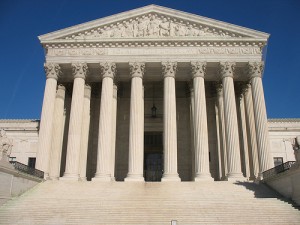Supreme Court Accepts Obamacare Case
Posted
17 Nov 2014 in Case Notes, Commentary
Last Friday the Supreme Court’s docket went from boring to big with the grant of just one case: King v. Burwell. The issue in this case is whether tax credits for low and middle income health insurance purchasers are available under the Affordable Care Act (ACA) if insurance is purchased on a federal exchange rather than a state exchange. Only 16 states and the District of Columbia have established exchanges. The ACA makes tax credits available to those who buy health...







